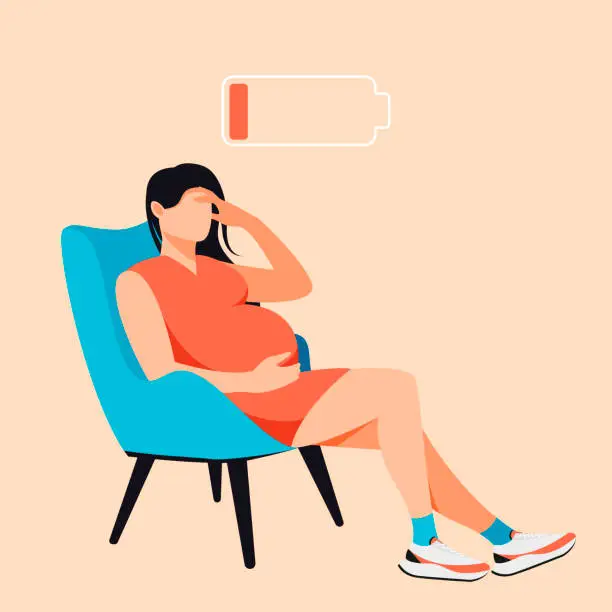Pregnancy can be challenging, and it is not uncommon for women to experience anxiety, depression, or other mental health issues during it. Taking care of mental health during pregnancy is crucial for the well-being of both the mother and the baby. Women need to take care of their mental health during these times as it can directly affect their infant's health.
Common Mental health disorders during Pregnancy
Pregnancy is a time filled with a range of positive and negative emotions. It is common for women to experience worry, particularly during their first or unplanned pregnancy or if they are dealing with depression or anxiety. The physical and hormonal changes that come with pregnancy and the stress of antenatal tests can also contribute to feelings of stress and anxiety. Some other disorders women can have due to pregnancy are:
- Bipolar disorder involves episodes of low-energy depression and high-energy mania.
- Panic attacks are sudden and intense physical responses with unexplained and paralyzing fear.
- Obsessive-compulsive disorder (OCD) involves uncontrollable and repetitive thoughts and behaviors.
- Eating disorders, like bulimia and anorexia nervosa, involve harmful and abnormal eating habits and behaviors.
Managing Mental well-being during Pregnancy
The topic of mental health shouldn't be avoided, especially during pregnancy. It is essential to take the essential steps to manage the mental well-being of the women going through it. Some standard measures that can help in maintaining better mental health are:
- Avoid setting unrealistic expectations and rest when needed.
- Try not to make any significant life changes unless necessary.
- Spend time with supportive people who make you feel good.
- Avoid the usage of drugs or alcohol to cope with stress.
- Connect with other expectant parents for support.
- Practice self-care through proper nutrition, physical activity, sleep, relaxation techniques, and seeking support from non-judgmental listeners.
- And always remember that it's okay to ask for Help and prioritize mental health during pregnancy.
Signs it's time to seek Help
It is normal to experience mood swings during pregnancy, but it may be a sign of something more profound if you feel nervous or down all the time. Some of the characteristics that it might be time for you take the Help from experts are:
- Consistent negative feelings (such as sadness or worry) for longer than two weeks indicate that you may need Help.
- If your ability to function normally is being affected by negative thoughts and feelings, it may be time to seek support.
- Signs of depression, such as losing interest, feeling hopeless, or being unable to cope, should be taken seriously and addressed with Help.
- Feelings of anxiety or worry that persist most or all of the time may indicate a need for professional support.
- The development of panic attacks and obsessive or compulsive behaviors may warrant seeking Help.
Conclusion
If you're a pregnant woman struggling with mental health issues because of it, it may be time to seek outer Help. Solh Wellness provides a non-judgmental, AI-driven platform for individuals to overcome their mental health issues. With self-help and community support tools and 24/7 availability of counselors, Solh Wellness is your one-stop solution for easy access to mental wellness. Download the Solh Wellness App and take a step towards better mental health and life.



